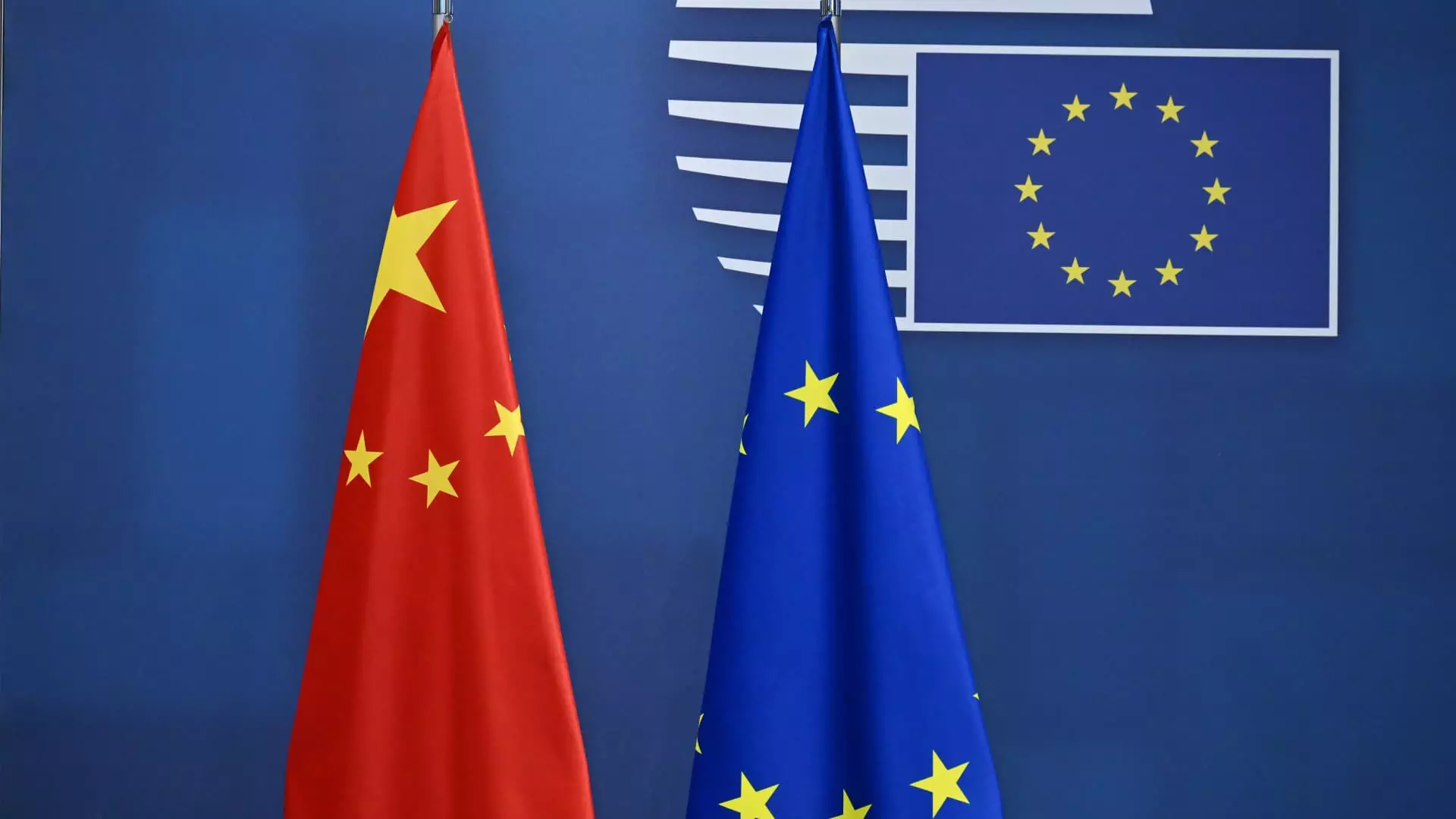The geopolitical landscape of international trade is rapidly deteriorating, with the spotlight shifting from traditional US-centric tariffs to the conflicting waters of EU-China relations. Once viewed as potential partners in a multipolar economic order, both sides now find themselves embroiled in a series of tit-for-tat measures that threaten to derail decades of diplomatic progress. The world, perhaps naively, believed that economic interdependence could foster collaboration; however, the current climate reveals a stark reality: economic nationalism and strategic mistrust are eroding these foundations with alarming speed.
The recent imposition of import restrictions on Chinese medical devices by the EU, followed swiftly by China’s retaliatory tariffs on European products like brandy, exemplifies a worrying trend—trade tensions now serve as battlegrounds for broader geopolitical ambitions. These actions are not isolated incidents but symptoms of a more profound struggle over economic dominance, technological supremacy, and national sovereignty. Diplomatic rhetoric has hardened, and mutual accusations over unfair trade practices—ranging from overcapacity to market manipulation—are becoming the norm rather than the exception.
The Clash of Economic Paradigms
At the heart of this bullish hostility lies a clash of fundamentally different economic models. China’s overproduction—often termed “overcapacity”—stands as a major concern for the EU, which fears being flooded with cheaper Chinese imports that threaten its own industries’ survival. Conversely, China views its export-driven growth as a legitimate strategy that it refuses to relinquish, even as global demand slows and global trade becomes more fractious.
This dichotomy is fueling a dangerous spiral: the EU seeks to protect its industrial base through tariffs and restrictions, while China perceives these measures as unfair barriers designed to curb its ascendancy. Both parties accuse each other of weaponizing trade and manipulating global supply chains for strategic gain. Such accusations create a toxic atmosphere that erodes trust, making cooperation increasingly unthinkable. Instead, economic policies are becoming tools for competitive advantage rather than frameworks for mutual benefit.
The economic pressures on China are particularly acute—sluggish growth, declining exports, and excess production capacity have compelled Beijing to leverage trade restrictions on crucial commodities like rare earth elements. These elements, vital to the high-tech and green energy sectors, are being used as strategic leverage amid ongoing tariff wars. Meanwhile, Europe’s attempts to bolster its technological autonomy are met with fierce resistance from China, fueling a cycle of retaliation that leaves little space for constructive dialogue.
Strategic Miscalculations and Missed Opportunities
In an era where global economic shocks could have served as catalysts for rapprochement, the opposite has transpired. The US tariffs under President Trump’s administration, once seen as a potential disruptor that could push China and the EU together against common economic adversaries, failed to produce intended solidarity. Instead, they exposed the fragility of multilateral trade agreements, with Beijing feeling emboldened by perceived victories over Washington and less inclined to compromise with Europeans.
This misjudgment highlights a critical flaw in Western diplomacy: a persistent overconfidence in the power of coercive tariffs to reshape global trade alliances. Instead of fostering openness, these measures deepen divides and embolden China to pursue a strategy of strategic resilience, diversifying alliances and asserting territorial and economic sovereignty. The EU, meanwhile, appears hesitant or unable to rally its collective strength effectively, losing historical leverage and influence.
The recent US-China agreement on rare earths and technology regulations, rather than signaling a thaw, illustrates how patchwork solutions merely paper over deeper structural issues. China’s export controls on essential raw materials and the EU’s push for greater autonomy suggest an impending fragmentation of the global supply chain—an outcome that could lock the world into a fragmented and less efficient economic order. Such a future threatens to undermine the shared goal of sustainable growth and cooperation, replacing collaboration with continuous conflict.
The Future of Bilateral Relations: A Fractured Horizon
Anticipating the trajectory of EU-China relations is akin to gazing into a fog of uncertainty and suspicion. The recent hardening of EU policies, coupled with China’s defensive posture, indicates a bleak outlook for meaningful engagement. Upcoming meetings, such as the planned EU-China summit, are unlikely to yield breakthroughs; instead, they are poised to highlight the deepening divide.
The strategic calculations have shifted dramatically. Europe’s efforts to safeguard its industries and boost technological independence are viewed as hostile by Beijing—prompting fears of a new Cold War paradigm rooted in economic rivalry. Meanwhile, China’s confidence in its economic standing emboldens it to push back aggressively against any semblance of Western encroachment. This clash of civilizations, disguised as trade disputes, threatens to morph into a broader geopolitical standoff with serious implications for global stability.
The current path suggests a future where cooperation is replaced by confrontation unless both sides can radically rethink their approaches. The opportunities for constructive engagement are shrinking, replaced by a sense of inevitable mutual antagonism. For those who believe in liberal values of diplomacy, openness, and dialogue, this turn of events marks a dangerous decline—an erosion of the multilateral consensus that once underpinned flourishing international trade.

